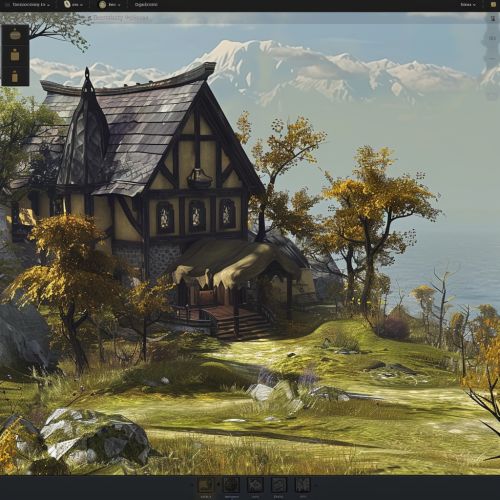MediaWiki:Common
Overview
MediaWiki:Common is a critical component of the MediaWiki software, which is the platform powering various wikis, including Wikipedia. The MediaWiki:Common page, often referred to as Common.css or Common.js, is used to apply site-wide styles and scripts that affect the appearance and behavior of all pages within a MediaWiki installation. This article delves into the technical aspects, usage, and implications of MediaWiki:Common, providing a comprehensive understanding for administrators and developers.
Technical Structure
MediaWiki:Common consists of two primary components: Common.css and Common.js. These files are located in the MediaWiki namespace and can be edited by users with appropriate permissions, typically administrators.
Common.css
Common.css is a cascading style sheet (CSS) file that allows administrators to define styles that apply to the entire wiki. This file is crucial for maintaining a consistent look and feel across all pages. It can be used to customize the appearance of elements such as fonts, colors, and layouts.
Key features of Common.css include:
- **Global Styling**: Applies styles to all pages, ensuring uniformity.
- **Customization**: Allows for extensive customization of the user interface.
- **Browser Compatibility**: Ensures styles are compatible across different web browsers.
Common.js
Common.js is a JavaScript file that enables the execution of scripts on every page load. This file is essential for adding interactive features and enhancing the functionality of the wiki.
Key features of Common.js include:
- **Dynamic Content**: Enables the creation of dynamic and interactive content.
- **Event Handling**: Allows for the handling of user events such as clicks and form submissions.
- **API Integration**: Facilitates integration with external APIs and services.
Usage and Best Practices
Proper usage of MediaWiki:Common is vital for maintaining the stability and performance of the wiki. Below are best practices for managing Common.css and Common.js:
Editing Common.css
When editing Common.css, it is essential to follow CSS best practices to ensure that the styles are efficient and do not negatively impact page load times. Some best practices include:
- **Minimize CSS**: Keep the CSS concise and avoid redundant styles.
- **Use Classes and IDs**: Leverage classes and IDs to target specific elements.
- **Test Changes**: Test changes in different browsers to ensure compatibility.
Editing Common.js
Editing Common.js requires a good understanding of JavaScript and its implications on the client-side performance. Best practices include:
- **Optimize Scripts**: Write efficient and optimized scripts to avoid performance bottlenecks.
- **Avoid Conflicts**: Ensure that scripts do not conflict with other JavaScript libraries or extensions.
- **Security Considerations**: Be mindful of security implications, such as cross-site scripting (XSS) vulnerabilities.
Common Use Cases
MediaWiki:Common is used for various purposes, ranging from simple style adjustments to complex script implementations. Some common use cases include:
Customizing the User Interface
Administrators often use Common.css to customize the wiki's user interface. This can include changing the color scheme, adjusting font sizes, and modifying the layout of specific elements.
Adding Interactive Features
Common.js is frequently used to add interactive features to the wiki. Examples include collapsible tables, dynamic navigation menus, and real-time data fetching from external sources.
Enhancing User Experience
By leveraging both Common.css and Common.js, administrators can significantly enhance the user experience. This can involve creating responsive designs, improving accessibility, and providing a more intuitive navigation system.
Security and Performance Considerations
Managing MediaWiki:Common requires careful consideration of security and performance. Poorly written styles or scripts can lead to vulnerabilities and degrade the user experience.
Security
Security is a paramount concern when dealing with Common.js. Administrators must ensure that scripts do not introduce security vulnerabilities. Key security practices include:
- **Sanitizing Inputs**: Always sanitize user inputs to prevent XSS attacks.
- **Using HTTPS**: Ensure that all external resources are loaded over HTTPS to prevent man-in-the-middle attacks.
- **Regular Audits**: Conduct regular security audits to identify and fix potential vulnerabilities.
Performance
Performance is another critical aspect to consider. Inefficient styles or scripts can slow down page load times and negatively impact the user experience. Performance best practices include:
- **Minifying CSS and JavaScript**: Minify files to reduce their size and improve load times.
- **Lazy Loading**: Implement lazy loading for non-essential scripts to improve initial page load times.
- **Caching**: Utilize browser caching to reduce the need for repeated downloads of static resources.


Troubleshooting and Debugging
Troubleshooting issues with MediaWiki:Common can be challenging, especially when dealing with complex styles and scripts. Here are some tips for effective troubleshooting:
Debugging Common.css
When debugging Common.css, it is helpful to use browser developer tools. These tools allow you to inspect elements, view applied styles, and identify any CSS conflicts.
Debugging Common.js
For Common.js, browser developer tools are also invaluable. They provide features such as breakpoints, console logging, and network monitoring, which can help identify and fix issues with JavaScript code.
Advanced Techniques
For advanced users, MediaWiki:Common offers numerous possibilities for extending the functionality of the wiki. Some advanced techniques include:
Using CSS Preprocessors
CSS preprocessors like Sass or LESS can be used to write more maintainable and modular CSS. These preprocessors offer features such as variables, nesting, and mixins, which can simplify the management of complex styles.
Modular JavaScript
Modular JavaScript techniques, such as using ES6 modules or libraries like RequireJS, can help organize and manage JavaScript code more effectively. This approach promotes code reusability and maintainability.
Integrating with External APIs
Common.js can be used to integrate the wiki with external APIs, enabling features such as real-time data updates, third-party authentication, and more. This can significantly enhance the functionality and interactivity of the wiki.
